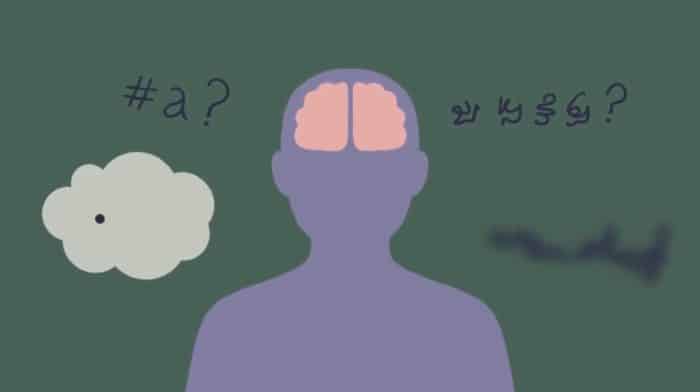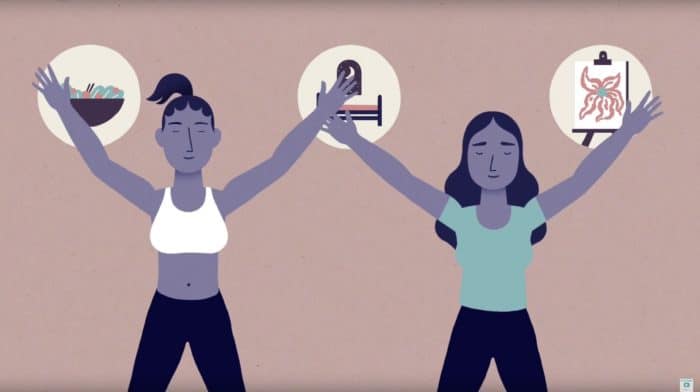Normal Aging vs. Possible Dementia
Normal Aging vs. Possible Dementia
As we age, it’s normal to forget where we put our car keys or why we went upstairs but how do we know what is normal and what are signs of early dementia?
Here are a few examples of normal aging vs. possible dementia:
| Normal Aging | Dementia |
|---|---|
| Not being able to remember details of a conversation or event that took place over a year ago | Not being able to recall details of recent events or conversations |
| Not being able to remember the name of an acquaintance | Not recognizing or knowing the names of family members |
| Forgetting things and events occasionally | Forgetting things or events more frequently |
| Occasionally having difficulty finding words | Frequent pauses and substitutions when finding words |
| You are worried about your memory but your relatives are not | Your relatives are worried about your memory but you are not aware of any problems |
ELEVEN EARLY SIGNS OF DEMENTIA:
The following table includes some possible signs of dementia. If the person you are caring for experiences two or more of these symptoms, you may want to get a professional opinion from your health care provider. These symptoms are just guidelines and they should be bad enough that they affect their day-to-day life.
| 1. Memory Loss | They can’t remember things they just recently heard, e.g. you have a conversation and they don’t remember anything about it right afterward. It is normal to forget something and then remember it later, e.g. the title of an old, favourite song or name of an old colleague. |
| 2. Personality Change: | They have mood swings or their personality changes, e.g. they become anxious, scared or depressed. A normally reserved person may become brazen or act out of character. |
| 3. Problem Solving Becomes an issue | They find it difficult following instructions or adding numbers together. It’s hard for them to follow a plan you give them because dementia makes it hard for the brain to plan, organize or sequence multi-step actions. |
| 4. Become Anti-Social | They may withdraw from socializing at work or home. They may totally stop talking to others; some don’t even pay attention when others are speaking to them! |
| 5. Familiar Tasks Become Difficult | They may find it difficult doing everyday things they used to do, like making a cup of tea or setting the time on a clock radio. |
| 6. Poor Hygiene | Sometimes people who have dementia lose all interest in personal hygiene and how they look. They stop bathing and dressing appropriately. |
| 7. Poor Decision Making | They also lose the ability to make sound decisions. They may buy things they don’t need and pay very high prices for the things they do buy. |
| 8. Confusion With Time or Dates | They have difficulty with the passage of time: they may forget where they are; have difficulty with dates and may find it hard to understand situations in the past or the future. They have difficulty remembering where they put things. Everyday items such as, their watch, TV or stereo remote, money or legal documents are misplaced. This can lead to frustration and could lead to thoughts that people are taking their possessions. |
| 9. Misplacing Their Possessions | They have difficulty remembering where they put things. Everyday items such as, their watch, TV or stereo remote, money or legal documents are misplaced. This can lead to frustration and could lead to thoughts that people are taking their possessions. |
| 10. Challenges With Talking Or Writing | Conversations may become difficult for a person with dementia. They may forget what they are saying or forget what the other person has said. It would be almost impossible for them to join in the middle of a conversation. Their hand writing may become difficult to read and their spelling and grammar may decline as well. |
| 11. Difficulty With Visual Information | Some find it difficult to interpret visual information. They can’t gauge how far a stop sign is or see the contrast between two colours. This will eventually make it impossible to ride a bike or drive. |
If you can see two or more of these symptoms in the person you are caring for, please see your health care provider for an assessment and possible treatment. Even though there is no cure for dementia today, there are interventions that can slow the progression and help the person feel more comfortable and improve their quality of life.






